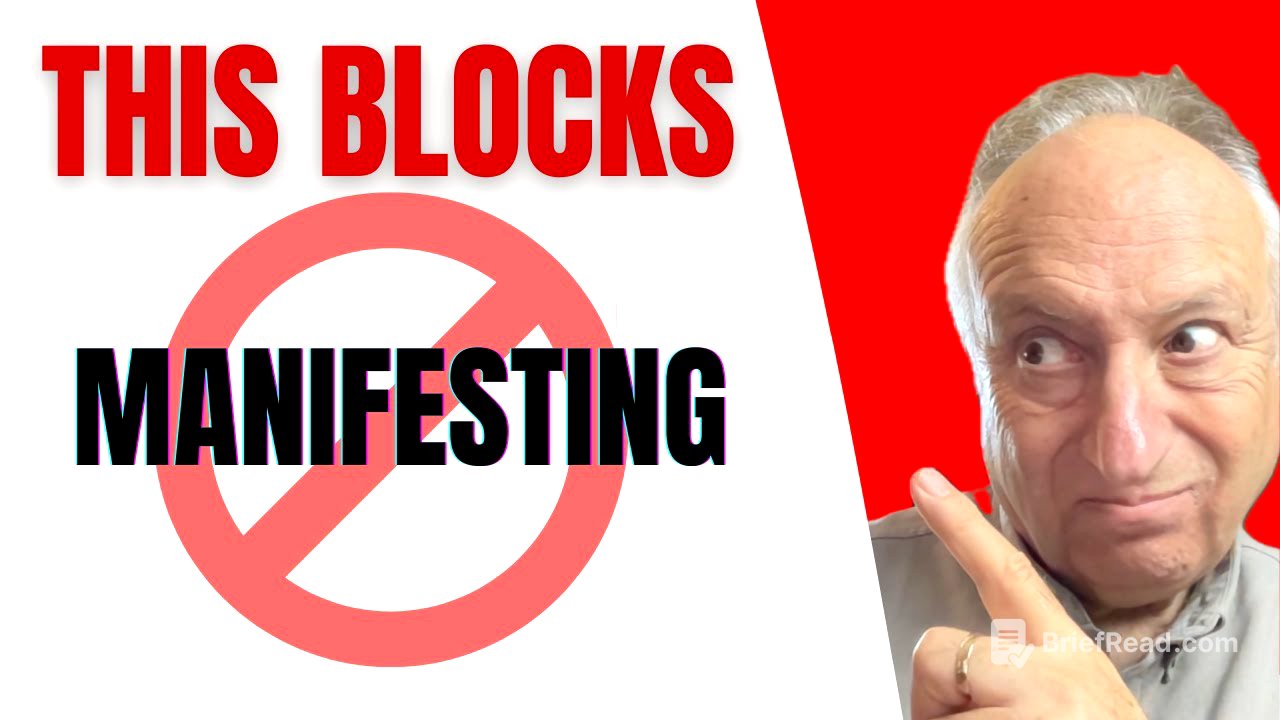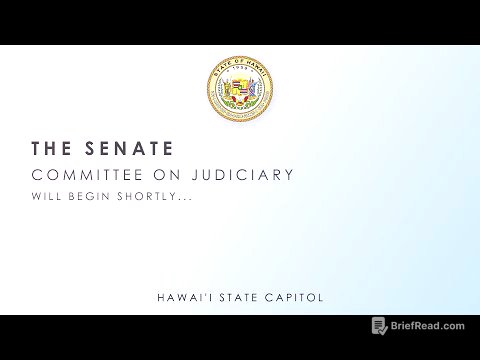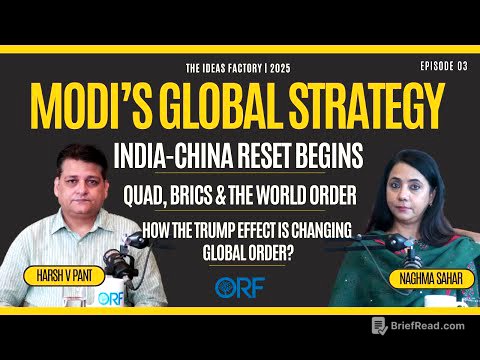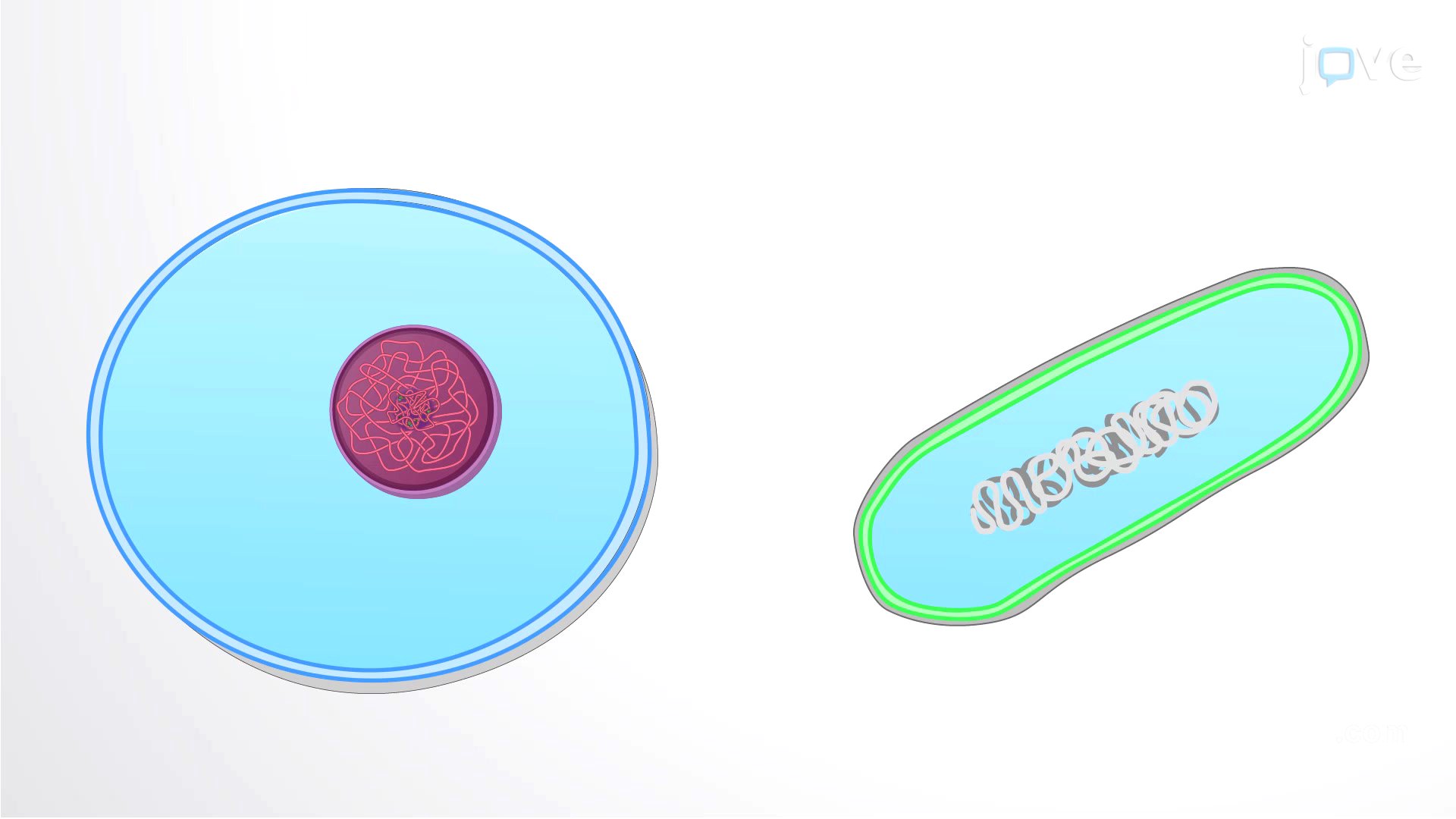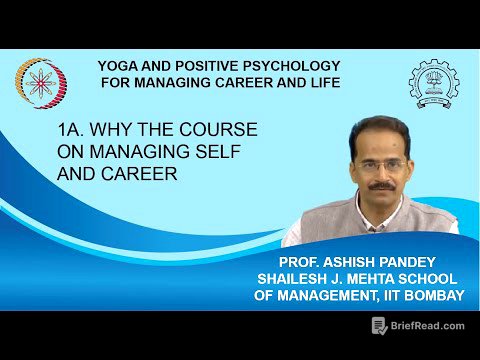TLDR;
This video addresses a common question that hinders manifestation: "Is it the universe or me?" Trevor Emdon argues that this question creates a "manifestation paradox" by focusing on mechanics rather than allowing the natural process. He shares a personal breakthrough experience and introduces a reframe: instead of asking who's in charge, ask "What wants to happen here?" The key is to trust the process, follow impulses, and realize that you are part of a larger system working perfectly.
- The question "Is it the universe or me?" keeps people stuck in manifestation limbo.
- Manifestation doesn't require understanding the mechanics, just like walking doesn't require understanding muscle function.
- Trusting the process and following impulses are crucial for effortless manifestation.
The question that's blocking your manifestations [0:00]
Trevor Emdon addresses the common question, "Is it the universe doing it, or is it me?" which he believes keeps many people stuck in manifestation. He likens this question to trying to determine whether the left or right foot is responsible for walking, arguing that it misses the point entirely. Trevor spent years grappling with this question, wondering if he needed to visualize, clarify his desires, or chant affirmations to get the universe's attention, or if it was all up to him to fix himself. This internal debate led to confusion and stagnation. He emphasizes that manifestation doesn't require understanding the mechanics, just as walking doesn't require understanding how muscles work.
Why this creates "manifestation paralysis" [1:45]
The speaker explains that questioning whether the universe or oneself is responsible for manifestation leads to a "manifestation paradox." This paradox involves trying to understand the mechanics of manifestation instead of simply allowing the process to unfold naturally. He compares this to trying to understand how the heart beats while it's beating, noting that such knowledge isn't necessary for the heart to function properly. He acknowledges that when facing challenges with money, relationships, or health, it's natural to want to understand the process and whether one should take action or wait for something to happen.
My breakthrough moment in the float tank [3:15]
Trevor shares a personal experience of hitting "rock bottom" and being advised by a friend to do something non-cerebral. He found a float tank and, despite initial skepticism, decided to simply enjoy the experience since he had already paid for it. This shift from trying to fix his problems to being present resulted in a profound change. Although his external circumstances remained the same, he felt lighter and as if something had shifted internally. This experience taught him the importance of letting go of the need to control the outcome and trust the process.
The intelligence you don't need to understand [6:15]
The float tank experience taught Trevor that there's an intelligence at work that doesn't need to be understood or controlled. He draws an analogy to bodily functions like fingernail growth, heartbeat, and kidney function, which occur without conscious effort or understanding. Asking whether it's "me or my body" doing these things is nonsensical because they are part of the same system. Similarly, in manifestation, you are not separate from the intelligence that can bring about change; the desire and its fulfillment come from the same source.
What to ask instead (game-changing reframe) [8:00]
Instead of asking "Is it me or the universe?", Trevor suggests asking "What wants to happen here?". When you have a desire, avoid getting caught up in whether you should make it happen or wait for the universe. Instead, acknowledge the desire and pay attention to what occurs to you. This might involve an idea, a feeling, or a forgotten memory. The key is to follow the impulses that feel right without analyzing their origin.
How to trust the process [9:15]
Trusting the process is where the magic lies. You don't need to know whether it's your left or right foot moving you forward; you just need to take the next step. The question isn't about who is in charge but whether you are willing to stop trying to figure it out and allow the process to work. By ceasing to ask "who's in charge?", you realize that the entire system, including you, is functioning perfectly. Ironically, there is nothing for you to do except take the action you are guided to take, similar to following GPS instructions while driving to an unfamiliar place.
